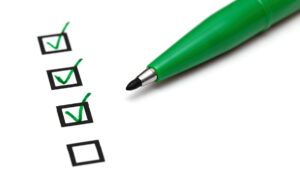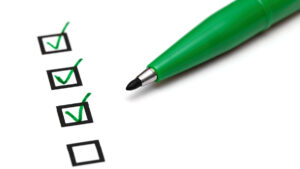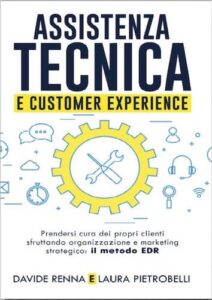In modern society, finding the perfect balance between freedom and work is one of the most challenging yet crucial goals for any entrepreneur seeking a fulfilling life.
Many people feel torn between a work-centered life, which offers financial stability but often at the cost of personal time, and a lifestyle prioritizing freedom, which can sometimes compromise professional growth and economic security.
But is it truly necessary to choose? Is there a way to effectively balance these two elements? I don’t have all the answers, but it’s something I reflect on and believe deserves attention.
My Vision of Balance Between Work and Freedom
True success isn’t measured by the number of hours worked but by the ability to balance passion with freedom, finding time to live fully.
I start from this concept to emphasize that balance between work and freedom isn’t a one-size-fits-all formula; it varies from person to person.
For some, freedom might mean having more leisure time for family or hobbies, while for others, it could mean the ability to work from anywhere, as in the case of nomadic entrepreneurs or freelancers.
Work, on the other hand, isn’t just an economic necessity but can also be a source of personal fulfillment and growth. The true balance I’ve discovered lies in finding a setup that allows one to enjoy the benefits of both spheres without excessively sacrificing either.
The Risks of Imbalance
When work overshadows personal freedom, one risks “burnout” – a state of physical and mental exhaustion caused by excessive and continuous stress.
People who work too many hours without taking the time to recharge may lose motivation, creativity, and general well-being, which can harm both productivity and quality of personal life.
Conversely, excessive freedom without adequate work engagement can lead to a lack of structure, goals, and ultimately a sense of emptiness. Freedom without direction can translate into dissatisfaction and anxieties about economic instability or lack of professional achievement. In entrepreneurship, a lack of direction can be harmful not only to the individual but also to the entire team.
Finding Balance: The Concept of “Flexible Work”
One key to achieving the perfect balance between work and freedom is flexibility.
The world of work is rapidly evolving, and more companies are adopting models that give employees greater autonomy in terms of when and where to work. The COVID-19 pandemic accelerated the adoption of remote work, proving that high productivity levels are possible without the need for physical presence in the office. I believe flexibility is closely tied to responsibility and meritocracy.
When goals are met and a positive work approach is taken, maximum flexibility for the team involved becomes not just desirable but essential.
Flexible work enables people to manage their time more effectively, balancing work demands with personal responsibilities and leisure time. However, this flexibility requires significant self-discipline and organizational skills. It’s easy to fall into the trap of overworking simply because one can, or underworking, leading to delays and long-term issues.
But can this flexibility be achieved in every field?
My answer is “it depends.” Every entrepreneur or professional often has pressing responsibilities, meaning that flexibility is closely linked to achieving goals or completing projects – an aspect of self-determination that grows gradually, partly with experience and partly with a support network and reliable collaborators.
Freedom Also Means Responsibility
An essential point to consider is that freedom doesn’t mean lack of responsibility. On the contrary, freedom requires a high level of personal accountability.
When you have the freedom to organize your time, you must be able to manage it effectively to reach professional and personal goals. This self-management skill is vital for those who wish to maintain a balance between freedom and work.
For many entrepreneurs, this responsibility translates into the need to develop leadership and time management skills. An entrepreneur, for example, must balance responsibilities toward the business with the desire to lead a fulfilling life.
This may mean delegating tasks, automating processes, or creating a solid team that can run the business in their absence.
Practical Strategies for Balancing Work and Freedom
I believe achieving the perfect balance between freedom and work requires conscious effort. Here are some practical strategies that can help:
- Define your personal and professional goals: Before you can balance work and freedom, it’s essential to have a clear understanding of what you want to achieve in both areas. Setting clear and measurable goals allows you to direct your time and energy effectively, without neglecting any important aspect of your life.
- Learn to say no: One of the biggest challenges for those seeking balance is knowing when to say no to commitments that don’t align with personal goals or that demand excessive sacrifice of personal freedom. Learning to say no helps you maintain control over your time and avoid overwork.
- Create a balanced routine: Even in freedom, having a routine is important. Starting each day with a plan keeps you focused on your goals without losing control. Include moments for breaks and relaxation as well as work hours in your routine.
- Set clear boundaries between work and personal life: Especially for those who work from home or have a business, it’s easy for work to seep into every aspect of daily life. Establish clear boundaries, such as fixed work hours or designated workspaces, to prevent your personal freedom from being constantly compromised.
- Automate and delegate: For business owners, one of the most effective tools for balancing work and freedom is automation. Automating repetitive processes or delegating tasks to reliable collaborators frees up precious time for what matters most.
- Value free time: Free time should not be seen as a break from work but as a necessary moment of regeneration to enhance productivity and creativity. Dedicate time to yourself, your family, and your hobbies, and you’ll see how this positively impacts your work performance.
The Power of Creative Freedom
An often-overlooked element when discussing the balance between work and freedom is the concept of creative freedom. Being free to explore new ideas, projects, and passions can provide a profound sense of fulfillment.
In the business world, the freedom to innovate and create new opportunities is what distinguishes a successful leader from one who merely follows the rules.
Innovation often stems from the ability to think outside traditional frameworks and experiment. When an entrepreneur allows themselves the freedom to think outside the box, their work can flourish in unexpected ways.
The Perfect Balance
Finding the perfect balance between freedom and work isn’t a linear path, nor is there a magic formula that applies to everyone. Each person has unique priorities, goals, and definitions of success.
However, what is fundamental is the awareness that true success isn’t measured solely in economic terms but also in the ability to live a fulfilling and balanced life and achieve meaningful goals.
Taking the time to reflect on what freedom and work mean to you is the first step toward creating a life where both can coexist in harmony.
Only then can you experience the satisfaction of having control over your time and choices, living a life that reflects your values and aspirations.











